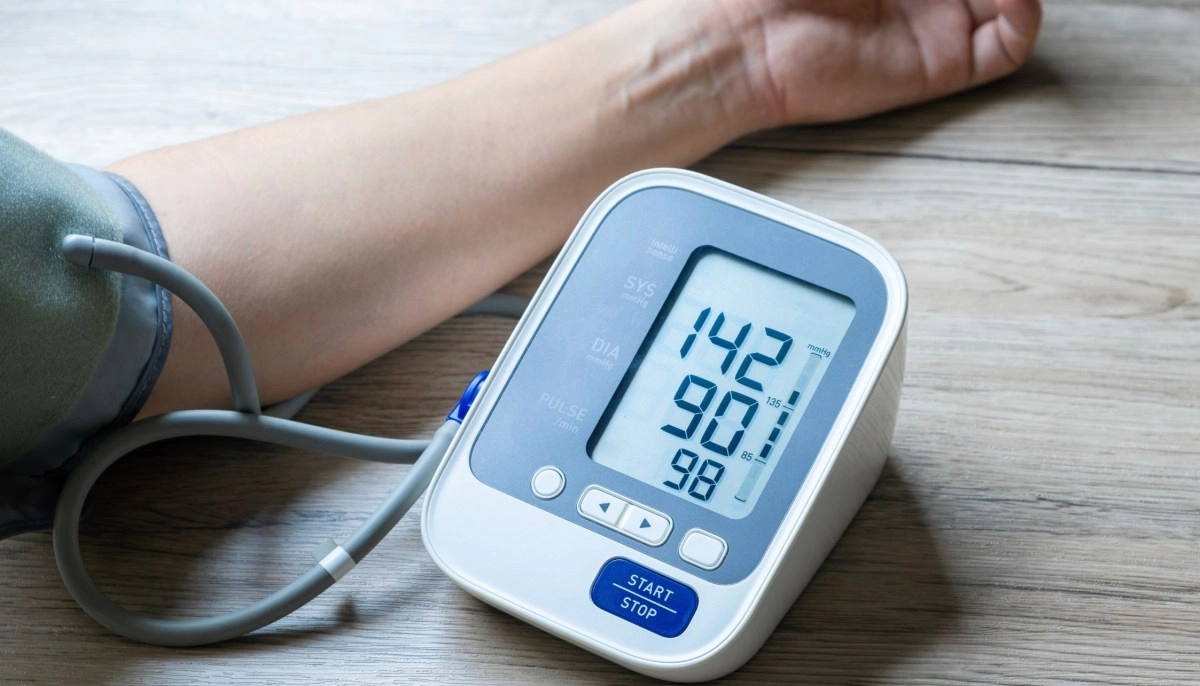High or low blood pressure, which is more serious?
Millions of people around the world live daily with values that deviate from the parameters considered normal

Blood pressure is one of the most fundamental indicators of our cardiovascular health, functioning like a thermometer that reveals the state of our circulatory system. Each time the heart beats, it pumps blood through the arteries, exerting pressure on their walls. This pressure is measured in two values: systolic pressure (when the heart contracts) and diastolic pressure (when it relaxes). Millions of people worldwide live daily with blood pressure readings that deviate from the parameters considered normal—between 90/60 and 120/80 mmHg—facing the challenges posed by both hypertension and hypotension. However, there is widespread confusion about which of these two conditions represents a greater health risk. Both conditions can have serious consequences for the body, although their mechanisms of damage, symptoms, and long-term risks differ substantially. Hypertension: The Silent Enemy. High blood pressure, commonly known as hypertension, affects more than one billion people worldwide, according to data from the World Health Organization (WHO). This condition is characterized by constant and excessive pressure on the arterial walls, leading to progressive wear and tear on the cardiovascular system. Values ??exceeding 140/90 mmHg on a sustained basis constitute the diagnostic threshold for this disease. The most dangerous aspect of hypertension lies precisely in its asymptomatic nature. Most people with high blood pressure do not experience noticeable symptoms until damage to vital organs is already advanced. For years, the heart works overwork to pump blood against increased resistance, the arteries lose elasticity and harden, and organs such as the kidneys, brain, and eyes suffer silent but relentless deterioration. The consequences of uncontrolled hypertension are devastating. This condition exponentially increases the risk of heart attacks, strokes, heart failure, Chronic kidney disease, vision problems, and even vascular dementia.
Cardiologists consider hypertension one of the main modifiable cardiovascular risk factors, responsible for millions of premature deaths each year globally.
Hypotension: Lower Chronic Risk
In contrast, hypotension,or low blood pressure—values ??below 90/60 mmHg—has a different nature. Unlike its counterpart, low blood pressure usually manifests with obvious symptoms: dizziness, blurred vision, nausea, extreme fatigue, fainting, and, in severe cases, shock. These signs appear because the brain and other organs do not receive enough blood flow to function properly.
However, hypotension is not always pathological. Many people, especially young people, athletes, and those with a slender build, maintain low blood pressure values ??without experiencing symptoms or health problems. In fact, some studies suggest that moderately low blood pressure may be associated with greater longevity.
The problem arises when hypotension is symptomatic or when it appears suddenly. The causes of low blood pressure are varied: dehydration, bleeding, severe infections, heart problems, medication side effects, endocrine disorders, or simply sudden postural changes (orthostatic hypotension). Although it can be debilitating at the time, especially due to the risk of falls and injuries associated with fainting, it rarely causes progressive organ damage as hypertension does. Medical Verdict: When specialists compare the severity of both conditions, the majority conclude that hypertension is the most dangerous from a public health perspective and in terms of long-term individual risk. Dr. Vicente Bertomeu, president of the Clinical Cardiology Section of the Spanish Society of Cardiology, summarizes it clearly: “Hypertension is much more serious because it causes sustained and cumulative damage to multiple organs over decades, while hypotension, except in acute emergencies, does not usually cause permanent damage.” However, there are situations where hypotension represents an immediate and potentially fatal risk. Hypovolemic shock due to massive hemorrhage, septic shock due to severe infections, or cardiogenic shock due to acute heart failure are medical emergencies where critically low blood pressure can cause death in a matter of hours if not treated aggressively. The fundamental difference lies in the timing of the risk. Hypertension kills slowly, eroding health year after year without the patient being aware of the deterioration until a catastrophic event occurs. Severe hypotension, on the other hand, represents an acute threat, but is reversible in most cases, provided the underlying cause is identified and treated.
Prevention and Treatments
Regardless of which is more serious, both conditions require medical attention. Hypertension demands strict control through lifestyle changes—reducing salt intake, regular exercise, weight management, and stress management—and often lifelong antihypertensive medication. The key is early diagnosis, before irreversible complications arise.
For symptomatic hypotension, treatment depends on the cause.It can range from simple measures such as increasing fluid and salt intake, wearing compression stockings, or changing medications, to more complex interventions in cases of underlying organic causes. Doctors recommend getting up slowly, staying hydrated, and avoiding situations that trigger sudden drops in blood pressure.
The fundamental point is not to trivialize either condition. Although hypertension poses a greater long-term risk, both conditions warrant professional evaluation. Regular blood pressure measurement—recommended at least once a year for healthy adults and more frequently for people with risk factors—is a simple but vital tool for detecting abnormalities before they lead to serious complications.
This news has been tken from authentic news syndicates and agencies and only the wordings has been changed keeping the menaing intact. We have not done personal research yet and do not guarantee the complete genuinity and request you to verify from other sources too.


